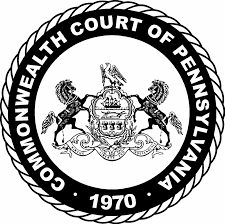Originally published on Forbes.com on June 16th, 2012
Being recognized as a 501(c)(3) organization confers several benefits on an organization, including for example the ability of donors to deduct charitable contributions. Recognition under 501(c)(3) does not, however, automatically confer exemption from local property taxes, even for property that is used for the organization’s exempt purpose. The recent decision by the Commonwealth Court of Pennsylvania in Camp Hachshara Moshava of New York v. Wayne County illustrates this well.
Despite its corporate name Camp Moshava is in Pennsylvania, although its office is in New York. It was founded in 1936 and has been at its current location in Wayne County since 1969. Here is its mission:
Camp Moshava aims to educate all members of its camping community to make Aliyah and to establish a model society in Eretz Yisrael, which will serve as an Or La Goyim, At the heart of this endeavor is Bnei Akiva’s ideology of Torah Va’Avodah and Religious Zionism. Permeating all aspects of camp life, Torah Va’Avodah emphasizes the importance of interpersonal relations, social justice and contributing to community within the framework of Torah and Halacha. Camp Moshava will support and inspire the social, emotional, intellectual and religious growth of its members within a fun camping environment.
Camp Moshava is a religious Zionist camp sponsored by Bnei Akiva of the US and Canada for the purpose of furthering the educational and ideological goals of Bnei Akiva.
According to its 2010 Form 990, it runs on about 4 million per year, almost entirely fees from the camp, with less than $200,000 per year in contributions. The only paid board member Alan Silverman, Camp Director, drew a salary of $192,500 in 2010 for his average 80 hour work week. The organization seems to have been roughly breaking even for the last few years. Somebody must have raised some money at some time in the past, as the 7 million in net book value of property on the assets side is matched mainly by net worth and an unsecured note of 1.5 million. The Form 990 was prepared by DDK & Company and signed by Mr. Silverman.
Under the Pennsylvania Constitution, in order for an organization to qualify for property tax exemption, it must be an “institution of purely public charity”. The term is undefined in the Constitution, but the Pennsylvania Supreme Court has ruled that an “institution of purely public charity” does all of the following:
(a) Advances a charitable purpose;
(b) Donates or renders gratuitously a substantial portion of its services;
(c) Benefits a substantial and indefinite class of persons who are legitimate subjects of charity;
(d) Relieves the government of some of its burden; and
(e) Operates entirely free from private profit motive
Qualifying under 501(c)(3) is much less challenging. Glossing over a variety of technical points the first and last items on the list are more or less sufficient for 501(c)(3) status. Since failure on any of the points denies the property tax exemption, the focus on the case was whether Camp Moshava relieves the government of some of its burden. It was noted that the Camp provided extensive assistance to local firefighters:
Specifically, Camp Moshava allows an ambulance to be stored on its premises and owns its own fire truck, which is available for use by firefighters in the community. Camp Moshava also provides its facilities to the local volunteer firefighting company and other firefighting companies for the purpose of staging training exercises.
That did not do the trick, though, because it is unrelated to the core mission of running a summer camp.
There is one issue that Moshava raised that I found rather intriguing, although as usual beyond my investigative resources :
Camp Moshava’s final argument is that the trial court and the Board have inconsistently applied the eligibility standards for charitable tax exemption contrary to the uniformity clause of the Pennsylvania Constitution and the express purposes stated in section 2 of Act 55. In support, Camp Moshava contends that the Board has granted tax exempt status to two other charitable organizations that are purportedly similar to Camp Moshava in many material respects and that the Board has erroneously applied the law in granting the exemptions to the other organizations.
Wayne County appears to be rich in summer camps, as this site of the Wayne County Camp Association shows. Camp Moshava serves roughly 1,000 campers drawn from all over the United States, Canada, Europe and Israel. Probably not so many from Wayne County. Is it possible that camps with a strong local constituency get easier treatment from the county?
The Pennsylvania Supreme Court decision in Mesivta Eitz Chaim Of Bobov, Inc v Pike County in April invites comparison. Here is a comment in one of the earlier decisions in that case:
However, Mesivtah did not present any evidence that the camp’s recreational and food facilities alleviate any local community burdens in Pike County like the Sewickley Valley YMCA.
The “burdens of government” test applied from a local perspective would appear to disadvantage religious minorities. The Bobov case was something of a major precedent in that it indicated that the legislature could not loosen the “purely public charity” standard that the Supreme Court of Pennsylvania had previously defined. Whether a case ends up going to court, though, will hinge on local decisions to grant or not grant exemptions. Any group that is thin on the ground will not have much of a local constituency wherever it decides to set up camp. Pennsylvania was founded on principles of religious toleration. Presumably the fact that the first decision using the Bobov case as a precedent is another Jewish summer camp is just one of those awful coincidences.
You can follow me on twitter @peterreillycpa.































































































